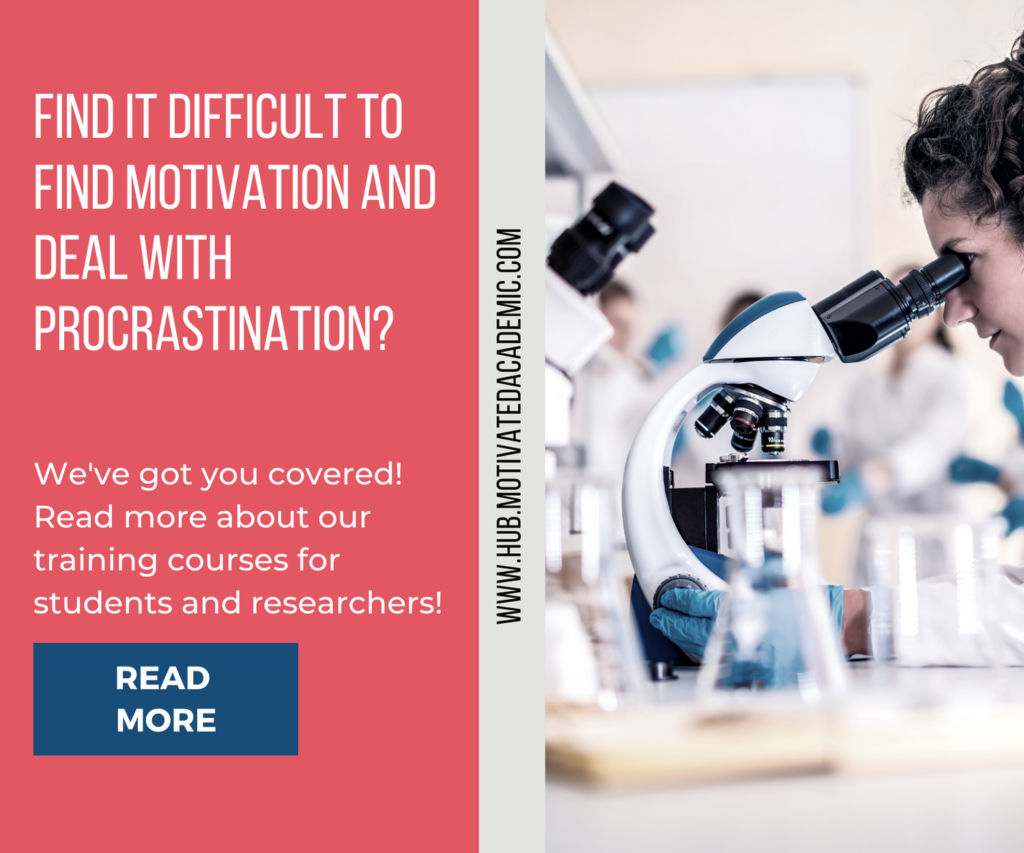PhD interview is a crucial part of the admission process. To help you prepare, we’ve put together a list of the best PhD interview questions! Check it out!
How do you get admitted to a graduate school? In most cases, there are at least two stages. In the first stage, you need to make an official application to your grad school and answer their questions. Then, in the second step, you may be invited for a PhD interview during which a panel, usually comprising your supervisory team, will be asking you interview questions.
If you want to become a successful PhD student, you really need to nail these PhD interview questions and use this interview as an opportunity to showcase your motivation and dedication to your academic career.
I know there is quite a lot of confusion about what PhD interview looks like and what are common PhD interview questions. Are you wondering how to prepare for a PhD interview? Let me share what I look for when I’m interviewing prospective PhD students.
Table of Contents
Structure of a PhD interview
Before I’ll talk about the most common PhD interview questions, let me briefly outline what you can expect during the interview itself.
Depending on the graduate school and the preference of the prospective supervisor, the interview can be very formal or quite informal. The structure of the interview may also vary depending on your area of study, as the focus in social sciences will be different than that in environmental science or engineering.
Regardless of this, there are similar stages that you need to go through before you can be offered a place on the PhD programme.
In many cases, the PhD interview starts with a short presentation that you give in front of the interview panel. This will likely focus on your background and your PhD proposal. If you apply for a specific project, then the focus of your presentation will likely be on how do your knowledge and skills align with the scope of that specific project.
Once you are done with your presentation, which by the way is usually between 10 and 20 minutes, then the panel members will start asking you the interview questions.
These questions aim to help the panel assess your:
- understanding of what a PhD degree is about and what’s required to successfully complete a PhD
- current skills and knowledge and your ability to further develop your academic and technical skills
- ability to manage projects under uncertainty
- understanding of novelty and original research
- understanding of what being a PhD student means and how demanding it is
- ability to deliver the research project within given time scale (and budget)
These are just a few areas that the PhD panel will quiz you about. But remember, this isn’t just about them asking you questions – you can also do so! If you want me the share the best PhD interview questions to ask as a prospective PhD candidate, please do let me know in the comments!.
What are the most common PhD interview questions?
#1 Why do you want to do a PhD?
Having a clear reason why you want to do a PhD gives the prospective supervisor an indication that you’ve thought this decision through. You are, therefore, less likely to drop off. Regardless of whether you want to do a PhD because of the career path you chose, willingness to solve challenges, being a lecturer in the higher education sector or just for personal ambition, having a clear why makes your performance during the PhD interview much stronger.
#2 What motivates you to do a PhD?
Another benefit of having a clear why is the fact that you will have something to aspire to. This will provide a strong driving force for you to complete your PhD, regardless of the challenges that you may experience. Make sure you list all reasons why you want to do a PhD degree before you apply and keep this list with you in case you need to boost your motivation. This will help you convince the panel that you’re prepared to handle the uncertain circumstances of research.
#3 What makes you a good PhD candidate?
One of the most common PhD interview questions is asking you to tell the panel why you think you are fit to undertake a PhD research. Knowing your strengths and weaknesses is critical. You of course want to emphasise your strengths as much as possible during the interview, but you need to be ready to discuss how you are going to handle any weaknesses you may have, what further training you need during your grad school, and what other development needs you to have to put you on the academic career path.
#4 What do you think PhD is about?
This is one of the first questions I ask every one of my prospective graduate students. Understanding what does PhD entails, in terms of scientific contribution and effort it takes, is critical to succeeding during your PhD interview. You need to know what you’re signing up for and you need to be prepared to work hard and smart to achieve impact with your work. It’s not only about having a good research proposal. PhD is primarily about advancing our knowledge and understanding of the world we live in. It’s challenging, it’s new, it’s uncertain – you need to be able to demonstrate that you’re able to handle this as a graduate student.
#5 What is one thing that is most important for you to successfully complete your PhD programme?
The panel is aware that research is uncertain and you may need to pivot as you go along with your work. But they may ask you about the most important question you think is necessary to help you successfully complete your PhD project. This PhD interview question is quite tricky because there isn’t a right and wrong answer. We are all different and the panel wants to verify how you’ll build on your strengths to deliver your project and impact.
#6 What experience do you have in this research field?
Although it isn’t always necessary to have direct experience in the field of the PhD you apply for, it will definitely help. The panel wants to verify your CV and how your past experience and education relate to the scope of your PhD. They want to make sure you have the fundamental understanding of the research area as this is crucial to success. So if your background is in social science but apply for PhD in environmental science, you need to be able to demonstrate that you’ve built a sufficient understanding of the PhD research field in another way.
#7 How your previous experience and skills will help you to deliver this project?
This is one of the interview questions that is rather asked to those who spent some time in their profession, rather than joining a graduate school straight after their Bachelor or Masters degree. This question asks you to demonstrate how you can leverage the hard and soft skills that you’ve already developed during your career to deliver a research project. The panel may also ask about the difference between the delivery of commercial and research projects at this point.
#8 How you can further build your skills to deliver this project?
You decided to join a grad school to further develop your skills. It isn’t only about delivering a breakthrough project, but also about developing you as an independent researcher. Therefore, you need to be able to reflect on your current skills and discuss what skills you need to succeed in graduate school. Also, think about how the faculty and supervisors can help you achieve this via additional training or mentoring.
#9 What is the novelty of your research project?
The success of your research proposal ultimately depends on the novelty it presents. Therefore, one of the most critical PhD interview questions is about the novelty of your work. Although you’ve already written your proposal, the panel may still ask you questions to further expand on your contribution to the existing body of research.
#10 How did you come up with your project proposal?
Building on the previous question, the PhD panel can go one step further and ask you how you actually come up with your project proposal. To answer this question, you need to demonstrate an understanding of the current state-of-the-art, know the main discussions and challenges in your research field. I’m sure you’ve done some sort of literature review when preparing your research proposal.
If you’re still working on your proposal, make sure you check our approach to the literature review and research tools that can support you in the process.
If you’re having trouble coming up with new research ideas, make sure you check my article and webinar on preparing research proposals.
#11 Why this research project has not been done before?
This is one of my favourite PhD interview questions. It essentially asks why other researchers haven’t done this research yet. It allows you to demonstrate your understanding of the state-of-the-art and show your critical analysis skills. Make sure you know why the research questions weren’t answered yet. Is this because people aren’t aware of these? Or maybe there are limitations in the current approaches and you’re going to change this in your research project?
#12 What challenges do you expect to encounter in this project?
This interview question allows you to demonstrate your approach to project and risk management. Understanding what may go wrong will help you prepare better for the delivery of your project. Although you may not predict everything, it demonstrates to the panel that you understand that the PhD research is uncertain by nature.
#13 How do you deal with uncertainty and challenges?
Building on the question above, the PhD panel may actually ask you how you would handle the challenges and uncertainty in your research project. They don’t expect you to identify all challenges that you’ll experience. Rather they want to understand whether you’re able to realistically plan a research project and don’t overcommit yourself. Of course, having a clear project management plan helps with the project delivery, but it also significantly reduces the stress and anxiety associated with doing the PhD.
Some time ago I wrote how you can handle the uncertainty of research. Make sure you check it out.
#14 What are your career aspirations?
This question will help the PhD panel understand what career path you’d like to pursue after your PhD, whether that’s a career in higher education or industry. They want to make sure that the PhD will contribute towards building your skillset and knowledge to support your future career. Although you may want to get a PhD degree to satisfy your personal aspirations, in the majority of cases getting a doctorate is dictated by your career aspirations.
#15 Do you have any questions for me?
As in any kind of interview, once the panel stopped throwing their questions at you, they’ll ask whether you have any questions. I ALWAYS do this! Why? Although this isn’t a very difficult “question” to answer, it gives us, the panel, a significant amount of information.
If you are inquisitive about the research group, other projects, research environment, development opportunities and so on, this shows that you’re really interested in working with me. It also tells me that you’re willing to explore options and are not worried to ask questions – a skill that is CRUCIAL for all researchers. When you don’t ask any questions, this may leave a rather unfavourable impression. Therefore, make sure that you have a list of several questions that you want the panel to answer.
Conclusion
An interview is a crucial factor that helps the PhD panel decide whether to admit you onto their PhD degree or not. In addition to preparing a strong research proposal, you will need to demonstrate your skills, knowledge and understanding of PhD process to the panel comprising your prospective supervisor and other members of faculty.
I hope this article will give you an idea of how to prepare for a PhD interview. Here I included a list of the most difficult PhD interview questions so that you can get yourself ready.
But remember, this isn’t just about them asking you questions – you can also do so! If you want me the share the best PhD interview questions to ask as a prospective PhD candidate, please do let me know in the comments!.











